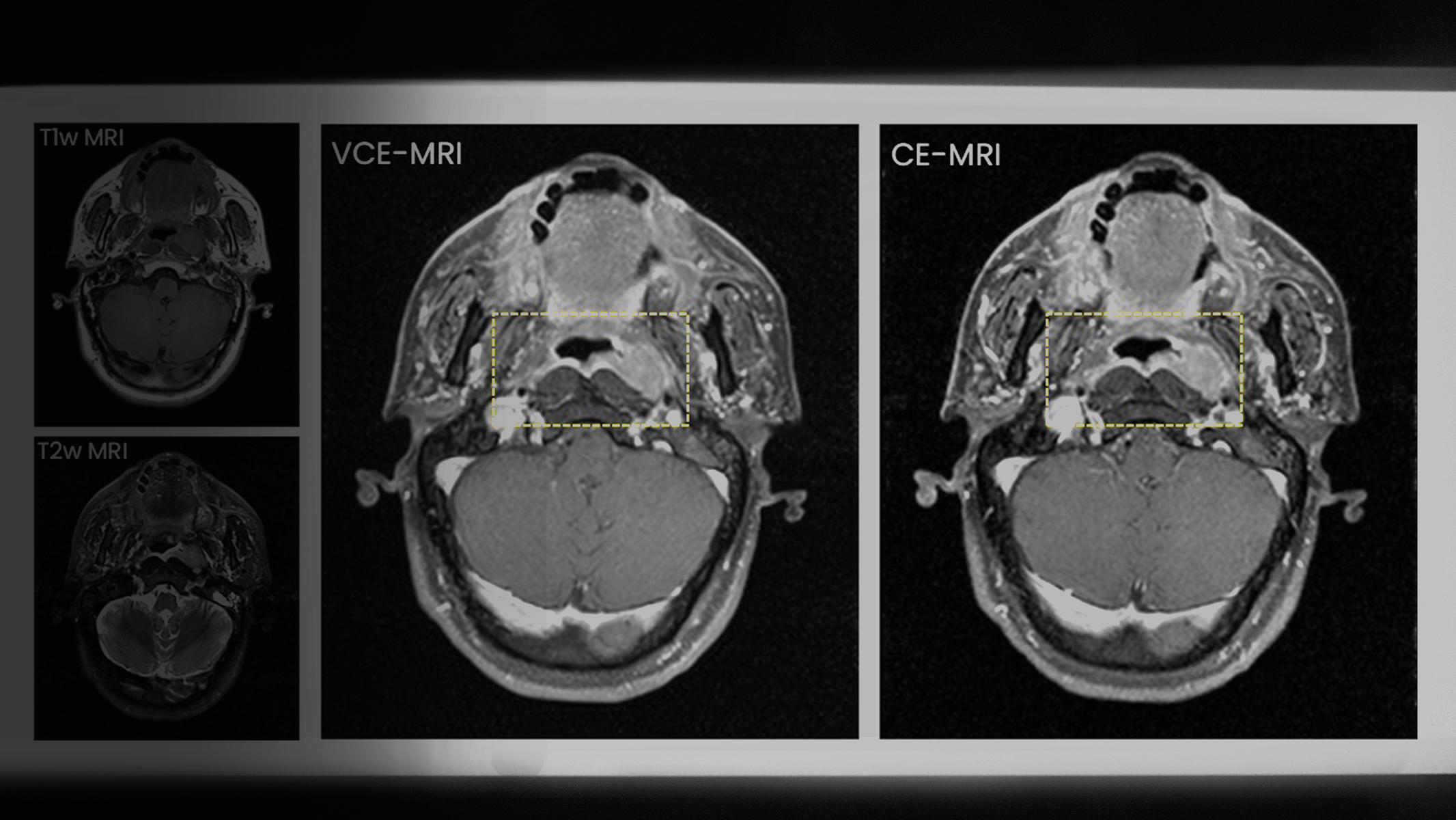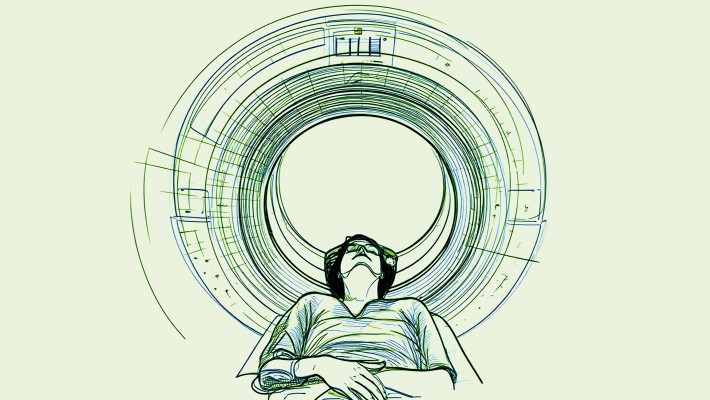AI Innovation Means Safer Scans and Fewer Side Effects
PolyU invention is poised for clinical tests
A novel AI-powered magnetic resonance imaging (MRI) system developed by PolyU researchers provides high-resolution imaging in tumour detection, eliminating the need for contrast agents and their potential side effects.
MRI scans can be conducted with or without the use of contrast agents. Administered intravenously, the agents gather in particular tissues or organs, including tumours, vascular abnormalities, or areas of inflammation. This enhances the visibility of these tissues on MRI images, offering valuable insights into the nature of any lesions.
Invaluable for accurate diagnosis of diseases such as cancer, contrast agents often contain heavy metals like gadolinium, which can cause discomfort, allergic reactions, and pose risks to foetuses and patients with kidney disease.
Virtual MRI Contrast Enhancement System
Now, a groundbreaking innovation from PolyU is transforming the landscape. This AI-powered solution eliminates the need for contrast agents while maintaining diagnostic precision.
Led by Professor Cai Jing of the Department of Health Technology and Informatics, the Virtual MRI Contrast Enhancement System leverages sophisticated artificial intelligence algorithms to generate high-resolution imaging comparable to traditional contrast-enhanced MRI. The system was developed using a comprehensive dataset of thousands of MRI scans collected from 39 hospitals across Hong Kong, Macau, and Mainland China, achieving a remarkable 88.7% similarity to contrast-enhanced images in nasopharyngeal cancer tumours.
“Traditional contrast agents, while effective, can pose significant risks to patients with kidney problems and pregnant women, not to mention the discomfort and potential allergic reactions,” explains Professor Cai. “Our system provides a safer, more cost-effective alternative without compromising diagnostic accuracy.”

The picture on the right is an MRI image using contrast agents (CE-MRI), while the one on the left is enhanced using AI technology (VCE-MRI). The images are on average 88.7% similar.
Global recognition and achievement
The innovation has received prestigious awards and academic achievements. It secured a Gold Medal at the 49th International Exhibition of Inventions Geneva 2024, demonstrating its global impact. The system also earned a Gold Medal at the 2024 China International College Students’ Innovation Competition, and a Silver Medal at the 2023 Asia Exhibition of Innovations and Inventions. The Bronze Award received at the 2023 Qianhai Guangdong-Hong Kong-Macao-Taiwan Youth Innovation and Entrepreneurship Competition (Hong Kong Division) further validating its commercial potential.
The research team has published extensively in leading medical imaging and artificial intelligence journals, gaining attention from the international research community, and highlighting the scientific rigor behind the innovation. Additionally, the team has secured patent applications in both the United States and Mainland China, protecting the technology across major markets.
From laboratory to market: the path forward
In 2023, Professor Cai and his team established MedVision Limited to take the technology to market. The startup has secured substantial government funding, including support from the Hong Kong Innovation and Technology Fund and HKSTP Incubation. This strong financial backing is helping the team to further enhance the technology while preparing for market entry.
Clinical trials at a local public hospital will begin in 2025, a crucial step toward widespread adoption. The team is also in discussions with major hospitals in the Greater Bay Area to expand the testing scope, to validate the system’s effectiveness across different patient populations and clinical settings.
“This technology represents more than an improvement in cancer detection,” Professor Cai emphasises. “It’s about making advanced diagnostic capabilities more accessible, safer, and more efficient for both healthcare providers and patients. Our goal is to revolutionise cancer diagnostics by offering a more sustainable, patient-friendly approach to medical imaging.”
The development exemplifies PolyU’s commitment to impactful research and knowledge transfer. It also promises to set new standards in non-invasive tumours imaging while improving patient outcomes in cancer treatment. The innovation highlights Hong Kong’s expertise in medical technology and will play a significant role in enhancing global healthcare solutions.

Professor Cai Jing | |
| • | Head and Professor, Department of Health Technology and Informatics |






